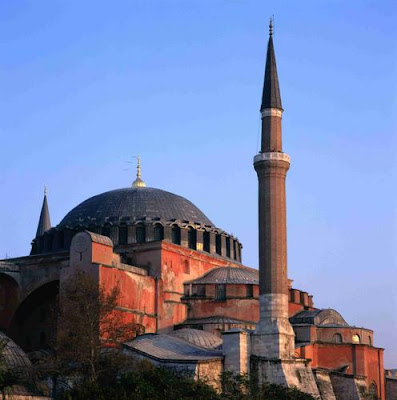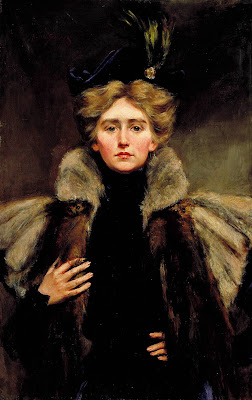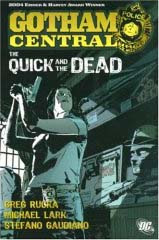Via
Kate's Book BlogBooks You’ve Been Planning To Read For Ages:
The Iliad, The Odyssey, War and Peace, Anna Karenina, The Idiot, Decline and Fall of the Roman Empire, The Count of Monte Cristo – You know what? I'm going to stop now.
Books You’ve Been Hunting For Years Without Success:The complete essays of G.K. Chesterton.
Books Dealing With Something You’re Working On At The Moment:Vegetable Love by Barbara Kafka,
Life Is Meals by James & Kay Salter, and
The Art of Eating by M. F. K. Fisher.
Because May 2007 will be my third year since I decided on a vegetarian diet. I want to read more about food and our relationship to food because people are more emotionally invested in food than I realise.
The Essential YogaSutra by Geshe Michael Roach & Christie Mcnally because - I am working on my yoga practice, and I need to read this.
Yoga Mala, by Shri K.Pattabhi Jois. The founder of the Ashtanga style of yoga is still alive at 90+ years old. This is one of his few treatise on the practice published.
Ashtanga Yoga by David Swenson. One of THE core text for Ashtanga yoga.
Books You Want To Own So They’ll Be Handy Just In Case:The Anatomy of Hatha Yoga. You never know when you'll need to look up what's going on in a backbend.
The Bible. You never know. You might need to look things up.
Books You Could Put Aside Maybe To Read This Summer:Discworld novels by Terry Pratchett. They are always good for an easy, enjoyable read.
Books You Need To Go With Other Books On Your Shelves:The Robert Fagles translation of
The Aeneid, to go with the Fagles translations of
The Iliad and
The Odyssey. (Actually, it also matches the little replica of a set of Greek Armour on my bookshelf.)
The Everyman Library editions of R.K. Narayan to match the Everyman Library edition of Dostoevsky, the Everyman Library edition of Gibbon's
Decline and Fall of the Roman Empire, the Everyman Library edition of Vasari's
Lives of Painters, Sculptors and Architects.
Books That Fill You With Sudden, Inexplicable Curiosity, Not Easily Justified:Wild Heart: Natalie Clifford Barney and the Decadence of Literary Paris by Suzanne Rodriguez. Natalie Barney herself knew she was limited in literary talent. So she made it her life mission to encourage and facilitate others more gifted than her.
This biography on the Parisian salonist motivated me to read Andre Gide, Colette, Marcel Proust, Janet Flanner, Djuna Barnes, Hemingway and his fellow Lost Generation writers.
The Aubrey/Maturin novels by Patrick O'Brian. The novels are actually quite predictable. But you have to give it to O'Brian for how he can really write naval drama. I find myself reading (with interest!) the essay "Jack Aubrey's Ships" at the back of The Mauritus Command; Patrick O'Brian uses real ships for the basis of his stories and the essay gives you some background on these naval vessels.
Patrick O'Brian makes me want to read an essay on old big boats. Oh my.
Bonus Entries:
Books That Everybody’s Read So It’s As If You Had Read Them, Too
Anything by Dan Brown – Everyone was talking about
The Da Vinci Code and stuff, so.
Anna Karenina – Woman has affair. Dies. Everyone seems to know the plot.
Moby Dick – Crazy one-legged guy obsessed with hunting Big White Whale that almost "declines to make an appearance." Ishmael survives.
Books You Needn’t ReadThe Da Vinci Code and anything else by Dan Brown. All those precious paper wasted producing his books. The man should be shot for the damage to the environment.
Books Made For Purposes Other Than ReadingUlyssess by James Joyce. I'll probably never get around to reading it. But it looks nice on the bookshelf. Strictly for display purpose only.
The Unseen University Cut-Out Book – I'm cutting out the pages and building a model of the Discworld Unseen University. Never had so much fun vandalizing a book. Not that I've EVER vandalised a book.
"Books You’ve Always Pretended To Have Read And Now It’s Time To Sit Down And Really Read Them"?
Dracula – everybody assumes I've read Bram Stoker's Dracula because I am a fan of vampire fiction and films, and it's just so easy to go along with the flow of the conversation. Hee.
The Myth of Sisyphus by Albert Camus. I actually never finished it. Will do it. Soon.
Sexual Personae by Camille Paglia – I've only read some chapters of it, but people have the false impression that I have read EVERYTHING by her. Nope.















